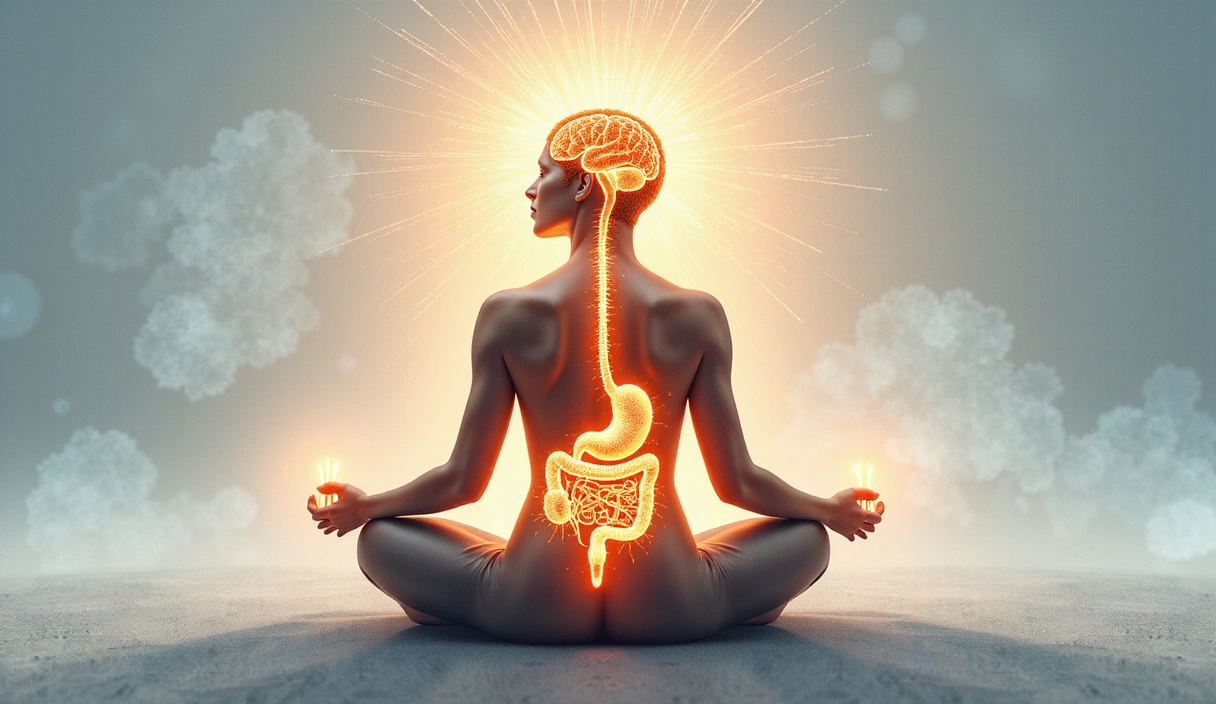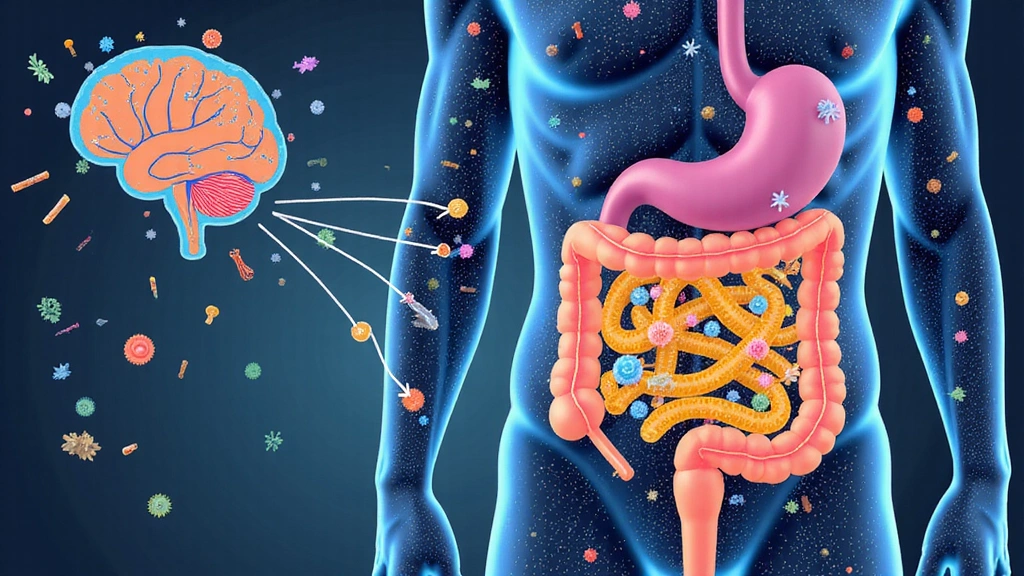The Gut-Brain Axis: How Your Diet Impacts Your Mood

The connection between our gut and our brain, often referred to as the "gut-brain axis," is a fascinating and increasingly researched area of health. It's not just a metaphorical link; it's a complex bidirectional communication system involving the central nervous system, enteric nervous system, endocrine system, and immune system. This intricate network means that what happens in your gut can profoundly affect your brain function, and vice versa. Understanding this axis is key to unlocking new ways to manage mood, stress, and overall mental well-being.
The Intricate Communication Network
At the heart of the gut-brain axis is the vagus nerve, a major cranial nerve that acts like a superhighway, transmitting signals between your brain and your digestive system. Beyond nerve signals, the communication also involves a complex interplay of hormones, neurotransmitters, and immune responses. Your gut microbiome – the trillions of bacteria, viruses, and fungi living in your intestines – plays a critical role in this dialogue. These microbes produce a wide array of compounds, including short-chain fatty acids (SCFAs) and neurotransmitters like serotonin and GABA, which can directly influence brain chemistry and function.

Neurotransmitters and Hormones
Did you know that approximately 90% of the body's serotonin, a key neurotransmitter that influences mood, sleep, and appetite, is produced in the gut? This highlights the digestive system's significant role in regulating our emotional state. Gut microbes can both produce and respond to neurotransmitters, creating a feedback loop that directly impacts our mental health. Additionally, stress hormones like cortisol can affect gut motility and permeability, demonstrating how psychological stress can manifest physically in the gut.
Dietary Impact on Mood
Given the strong connection, it's no surprise that what you eat has a direct impact on your mood. A diet rich in processed foods, sugar, and unhealthy fats can lead to inflammation and disrupt the delicate balance of your gut microbiome, potentially contributing to feelings of anxiety and depression. Conversely, a diet rich in whole, unprocessed foods, fiber, and fermented products can foster a healthy gut environment, positively influencing your mental well-being.
Key Dietary Components for a Healthy Gut-Brain Axis
- Probiotics: Found in fermented foods like yogurt, kefir, sauerkraut, and kimchi, probiotics introduce beneficial bacteria to your gut, which can help improve mood and reduce anxiety.
- Prebiotics: These are non-digestible fibers that feed the beneficial bacteria in your gut. Excellent sources include garlic, onions, leeks, asparagus, bananas, and oats.
- Omega-3 Fatty Acids: Abundant in fatty fish (salmon, mackerel), flaxseeds, and walnuts, omega-3s are crucial for brain health and have anti-inflammatory properties that can benefit the gut.
- Whole Grains: Rich in fiber, whole grains like oats, brown rice, and quinoa support a diverse microbiome and provide sustained energy for brain function.
- Fruits and Vegetables: A wide variety of colorful fruits and vegetables provide essential vitamins, minerals, and antioxidants that protect both gut and brain cells from damage.

Practical Steps to Nurture Your Gut and Mind
Adopting a gut-friendly diet doesn't have to be complicated. Start with small, sustainable changes and observe how your body and mind respond. Hydration is also crucial; drinking enough water supports overall digestive health. Beyond diet, lifestyle factors like regular exercise, adequate sleep, and stress management techniques (e.g., meditation, yoga) also play a significant role in maintaining a healthy gut-brain axis.
Mindful Eating and Stress Reduction
Eating mindfully, paying attention to your food, and eating in a relaxed environment can improve digestion and nutrient absorption. Chronic stress can negatively impact your gut microbiome and gut barrier function. Incorporating stress-reducing practices into your daily routine is just as important as your dietary choices. Remember, a healthy gut is a happy gut, and a happy gut often leads to a happier mind.
"The gut is not just a digestive organ; it's a second brain, intricately linked to our emotions and mental well-being. Nurturing it is nurturing our entire self."
— Dr. Emily R. White, Nutritional Psychologist
If you're struggling with mood issues, anxiety, or digestive discomfort, consulting with a nutritionist or healthcare professional who understands the gut-brain axis can provide personalized guidance and support. At NutriLife Consult, we offer tailored nutritional plans designed to optimize your gut health and enhance your overall well-being. Feel free to explore our services for more information.
